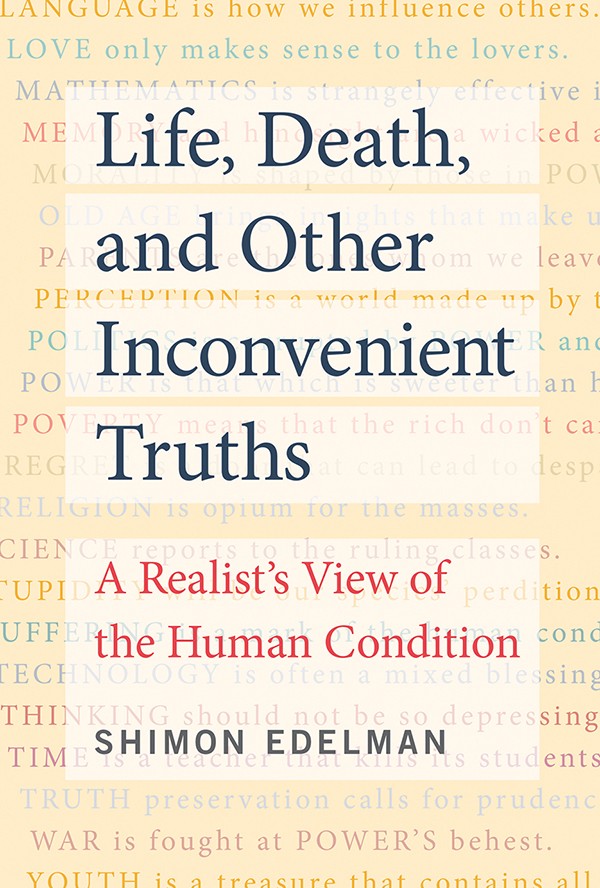Professor offers alphabetical guide to human nature
By Kate Blackwood
Life doesn’t come with a user’s manual, but Shimon Edelman, professor of psychology in the College of Arts and Sciences, has created an alphabetical reference guide.
In his new book “Life, Death, and Other Inconvenient Truths: A Realist’s View of the Human Condition,” Edelman takes up the human experience in 38 short, cross-referenced essays, which examine the general parameters that shape our existence, in alphabetical order, from action and ambition, via language and love, to war and youth.
“This book … is a kind of reference volume, a partial one for sure, for making sense of the human world and of the hard work of human soul-making, or simply life,” Edelman wrote.
“Life, Death, and Other Inconvenient Truths” opens with an essay on action that cites the Biblical story of creation (“And God said, Let there be light”) and quotes Goethe, Philip K. Dick and Ursula K. Le Guin on human creation of art.
“Mere finite beings such as ourselves may not be in the business of creating entire universes … but we do routinely try to remake what we can of our little world to our advantage through our actions,” Edelman wrote.
The chapter on anxiety brings in neuroscience in discussing causes of stress in human experience: “All sentient beings are capable of physiological stress response, but it takes special skills to also do anxiety.”
Edelman introduces the chapter on fear with personal experience of snorkeling far from shore. He also holds up his own life as an example: In the chapter on youth, the last alphabetically: “Had I not chanced to be born in the USSR, or had I come across Le Guin’s books (say) instead of Feuchtwanger’s during my formative years, I would not exist,” he wrote. “Someone entirely different, bearing my name and looking a bit like me would be reaching back in memory to the times when he was young in an attempt to make sense of it all.”
Throughout the book, topics are cross-referenced: Memory appears in the chapter on youth; action shows up in the chapter on stupidity; and politics and power appear in the chapter on truth.
“There are a lot of pretty strong claims in the book about what our world is like and why,” said Edelman, whose formal training is in electrical engineering and computer science. “In each case I offer (in the endnotes) references to primary sources from a variety of disciplines that can be used as a starting point for an informed inquiry into the issue at hand.”
A proponent of primary literature on any topic, Edelman taught a seminar on the materials in the book to Cornell undergraduates. The students did not shy away from even the difficult topics, such as death and suffering, he said, adding that the latter is the one he most wants the reader to learn from.
“While suffering is the human lot, much of it is preventable,” Edelman said, “if only we put our minds to it and build a society based not on ambition, power, and profit, but rather on caring, compassion, and mutual help.”
He concludes each essay with a list of books to read, films to watch, music to listen to and even actions to take for further exploration. For example, he suggests listening to the Radiohead song “You and Whose Army?” related to power, and reading Shakespeare’s “The Tempest,” related to consciousness. At the end of the chapter on children, he suggests that the reader go “hiking in the wilderness, with the kids.”
In fact, it was these lists of reading, viewing, listening and activities that inspired Edelman to write the book.
“It was my opportunity to recommend some of my favorite readings, films, and songs and to do it by pointing, in each case, at what I see as an essential facet of the work in question,” he said. “If it helps someone discover Ursula Le Guin or Jorge Luis Borges or Wim Wenders or Andrey Tarkovsky or Leonard Cohen, it would make me really happy.”
Kate Blackwood is a writer for the College of Arts and Sciences.
Media Contact
Get Cornell news delivered right to your inbox.
Subscribe

